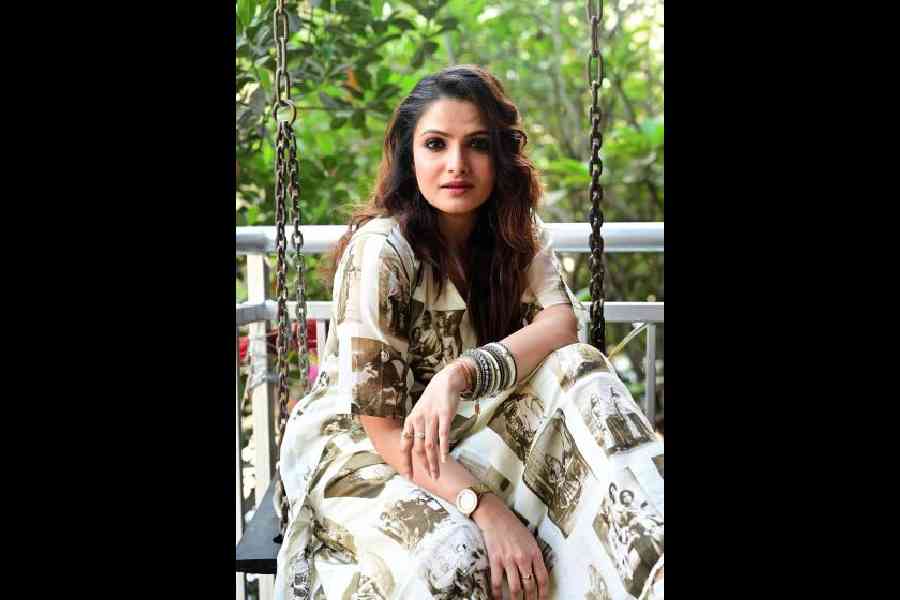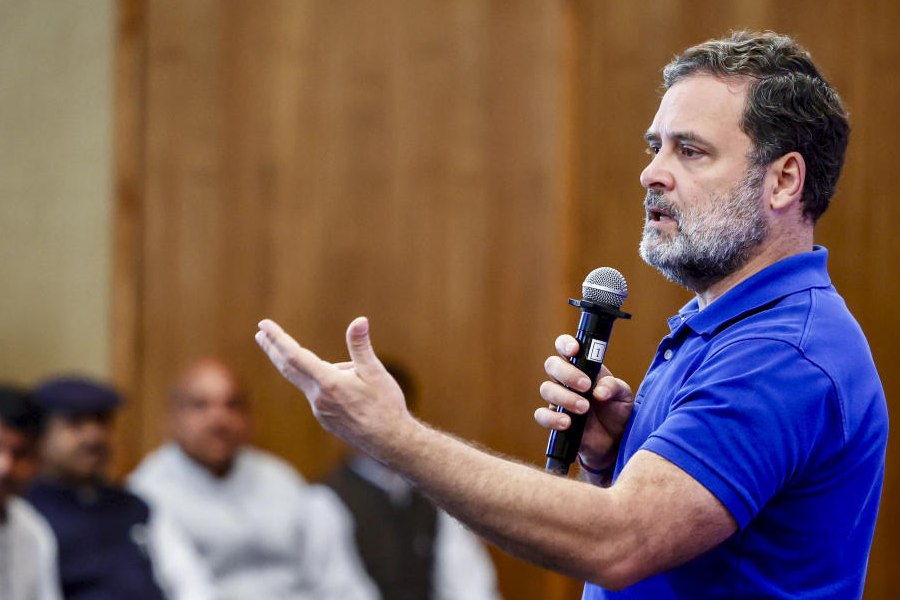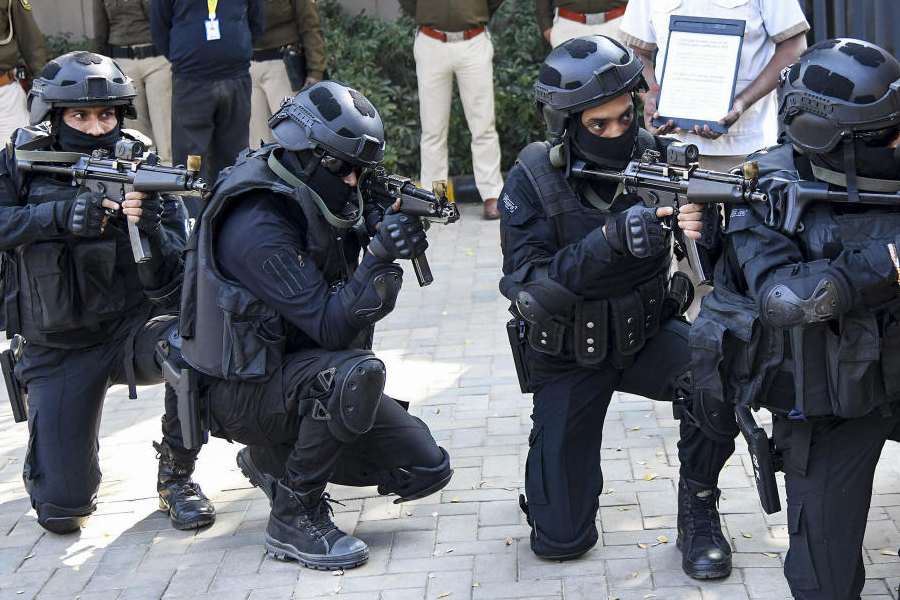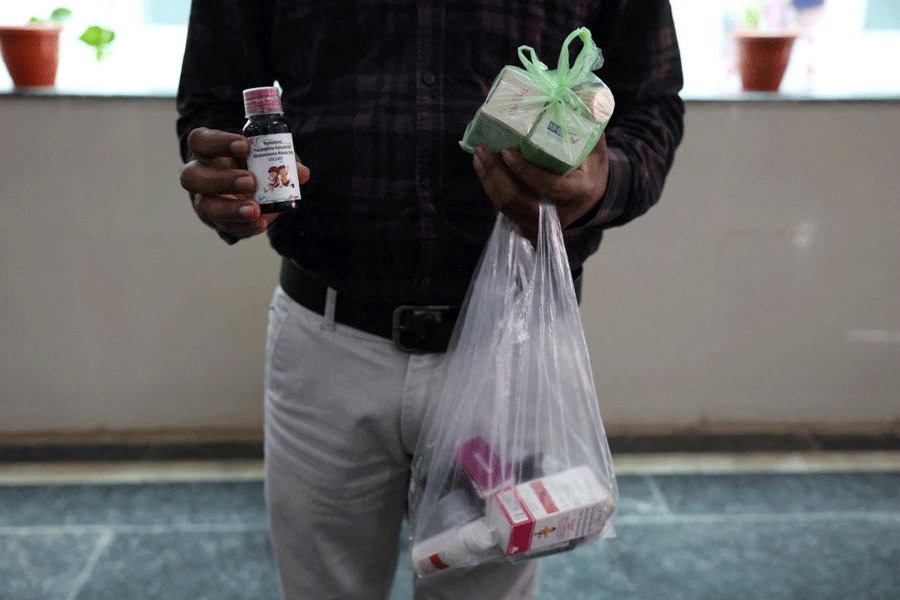The script of Karon Greece Amader Desh Na Othoba Blue-Black O Transparent White (directed by Sudipta Laha) is structured as a film within a film where the director as a first-time maker shoots the journey of a debutant director’s desire to make his first film. After premiering in the Greece International Film Festival, the film, starring Kamaleswar Mukherjee, Tnusree C, Anindya Chatterjee, Gourab Chatterjee, is playing in theatres now. A t2 chat with Tnusree C...
Tell us about your character in this film.
It is inspired by a real person. So, when my director read out the script to me, it felt very real. I play Sudipta’s (played by Anindya Chatterjee) elder sister, and Sudipta has come to shoot for his film at his sister’s place. My character is someone who behaves in extremes. She is super happy or super sad and sometimes she is philosophical regarding certain things. She does things which may not appear very meaningful or logical but that is who she is, so she behaves like that. When I heard the story, I asked our director why she was behaving like this. He told me that sometimes people react without any reason. Many times there’s no reason behind why we react in a certain way; we react because we are like that. And that is true.
Did you empathise or connect with her at any point?
I did. When Sudipta was explaining the script to me, I realised that we truly do things in life sometimes, some actions, which have no meaning. Sometimes we get angry about something but when we look back we tell ourselves that is not who I am, then why did we do that? It happens to many of us. It is a character that has no graph.
Was it difficult for you to portray such a character?
Yes! When we play a character which has no graph, it is difficult because the audience will get to know her within two hours. I have two hours to explain to them who she is. My director and I had many creative differences regarding her portrayal. But he was very stubborn and determined about it as he had met the character in real life. But I liked the fact that he was stubborn as he was sure of what he was doing. He was sure of his work. It was a challenge for me to design logic and build a graph for the character for me to play. I tried to act as per the director’s vision of her.
You often work with first-time filmmakers…
When I like the script, I do it. I see the person’s confidence. There can be creative differences but he has to know what he is doing. I have no problem working with someone new as I believe cinema is inspired by life. Life is not inspired by cinema. And every person has seen life.
What attracted you to the script?
My director here did not allow me to do any make-up or hair. I really wanted to do a film with my own look. Each scene was done in a single take. I really liked the treatment of the film. And of course, the story. There are many real-life moments. The director Sudipta shot the character Sudipta played by Anindya. We are showing Sudipta going to the floor… the story has a unique treatment. The story shows a phase. The trailer is also nice. Everybody liked it. It is a risky subject but the treatment is good.
How was your shooting experience with Anindya and Gourab...
We had many dialogues. All of us. Pages after pages… and the dialogues were like conversations. Sudipta wanted to shoot everything very properly. To do that we had to prepare a lot. Kamaleswarda, Parthada (Partha Sarathi) and I would sit in the make-up room and rehearse.
The film tells us how a first-time filmmaker has to compromise while making a film of his choice that will be easily acceptable. Did you ever compromise on your film choices in the initial days of your career?
I have never compromised on the choice. But something else happened. I agreed to do a film because the script was great but when it translated on screen after edit everything looked completely different. During such instances, I had often wondered whether I compromised on my choice. But I had never done so consciously. The director and I have to be on the same page when I select a script. I always try to keep that in mind and I always try to choose roles where my character is contributing to the script and people will remember me. Starting from Bedroom to Uro Chithi or Buno Haansh…that’s how I have considered my roles.
The film also talks about a newcomer’s journey from arrogance to humility. Have you been through such a journey in your career and how important is it in an artiste’s life?
I have seen this happen with many actors. When one film sees success they feel like they are already successful. They don’t understand that they must sustain and go far. They behave like they are the centre of everything and everyone has to listen to them. They forget to value others. If we think that we have achieved a lot and whatever we say will be heard by people, that’s wrong. An artiste’s profession is a journey and in order to sustain, one has to keep doing their job well. Every day is a new experience. I have realised it and every artiste does that at some point.
The trailer gives a feel that the film is for a niche audience. Why should one watch it?
For the treatment. I think it will surprise everyone who comes to watch it. It was shown at the Greece International Film Festival, and the response was great. We will soon send it to other festivals too.
At this point in your career, how do you choose your films?
I always do films where I get to play a character that I have never done. The script is very important.
Outfit: Shubha Design Studio
Make-up and hair: Sayoni Dhar










